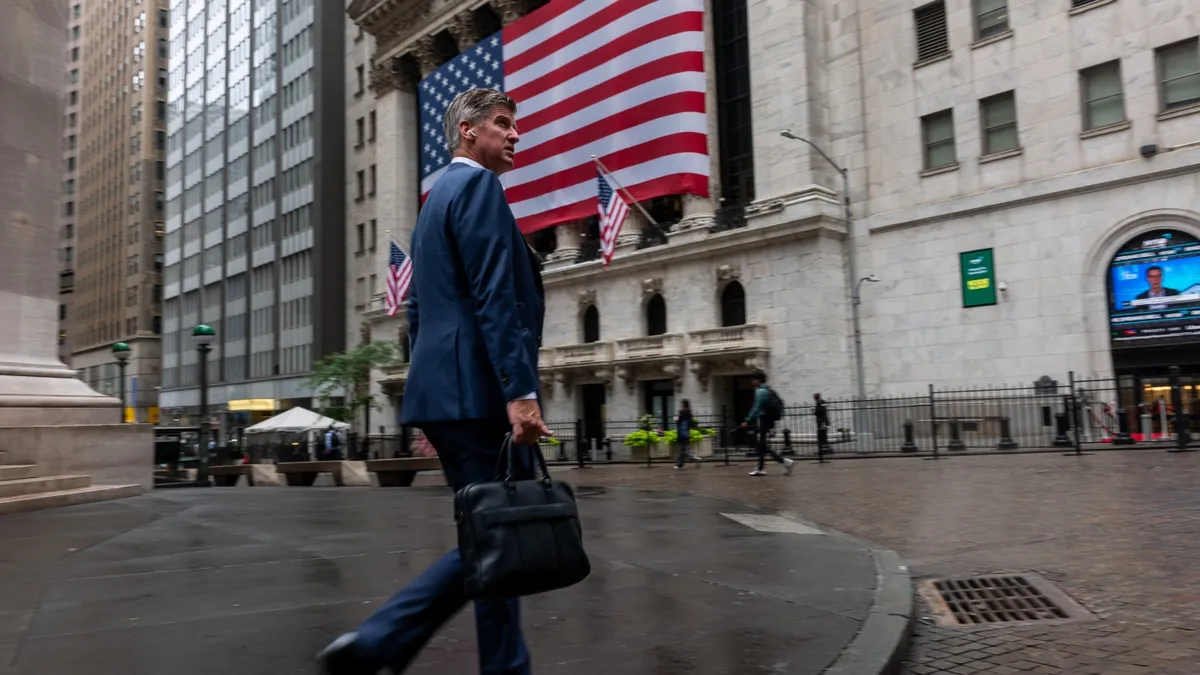
Corporate America is currently navigating two starkly contrasting realities due to President Trump's tariffs. In the past week, over 100 of the largest U.S. companies reported their quarterly financial results, providing insights into their earnings, losses, and future expectations. These updates not only reflect the financial health of individual companies but also shed light on the overall economic sentiment among CEOs and business leaders. As another White House deadline approaches for tariff agreements with foreign nations, the financial reports this month have garnered significant attention, revealing a wide range of experiences across different industries.
The earnings reports vary considerably among companies. Industries such as automotive and consumer goods are feeling the brunt of the tariffs, with many reporting significant financial hardships. On the other hand, technology and financial firms, which rely less on imports, have enjoyed a prosperous few months. According to Laura Veldkamp, a finance and economics professor at Columbia Business School, there is a notable divergence in experiences among firms, with some heavily impacted by rising import costs while others remain relatively unscathed.
Investors appear to be leaning towards the positive side, as evidenced by the benchmark S&P 500 and the tech-focused Nasdaq, both reaching record highs recently. In contrast, the Dow Jones Industrial Average faced some volatility, influenced by negative news from companies like UnitedHealth Group, yet it still managed to increase by over 500 points, or nearly 1.3% this week.
As corporate leaders share their perspectives on the economy, three significant takeaways emerge:
1. Fatigue Over Tariff DiscussionsCEOs and business executives have been grappling with how to voice their criticisms of Trump's policies without provoking backlash. Following the announcement of the tariffs in April, powerful executives used their earnings calls to express concerns about the potential negative impacts of these taxes. Although some tariffs have been delayed or modified, uncertainty remains about their final structure. Many leaders are now trying to shift their focus beyond the ongoing tariff discussions. As Jeremy Barnum, CFO of JPMorgan Chase, mentioned, the corporate sector is gradually accepting the need to navigate through these challenges and move forward, even though individual firms continue to face significant hurdles.
2. Varied Experiences Across IndustriesNot all large corporations are experiencing the same level of distress due to tariffs. For instance, General Motors reported a loss exceeding $1 billion due to tariffs in the last quarter, although they still managed to post a profit. Conversely, Chipotle is noticing a decline in customer purchases as economic concerns grow, coupled with rising ingredient costs. On a brighter note, companies like Coca-Cola and Hasbro have reported better-than-expected earnings, while Google is investing an additional $10 billion into its artificial intelligence initiatives, reflecting its strong performance. Financial institutions have also taken advantage of market volatility, resulting in an excellent quarter for major banks. Veldkamp notes that retailers and companies dealing in physical goods typically feel the first impacts of tariffs, as they rely on imported products.
Some businesses, including Walmart, have indicated they may pass on some increased costs to consumers, while others are attempting to absorb these costs for the time being. However, as Veldkamp warns, if companies cannot maintain profitability at current price levels, they will eventually have to raise prices for consumers.
3. Uncertain Future Impact of TariffsConsumers are beginning to experience the effects of tariffs, as recent government data indicates a rise in inflation. However, there are still many uncertainties ahead. The next deadline for tariff implementation is set for August 1, after being postponed from earlier in the month. Until the U.S. finalizes new tariff rates, businesses will lack clarity regarding their costs. Moreover, it will take additional time for any changes in costs to reach consumers and affect the overall U.S. economy.
In conclusion, the landscape of corporate America amidst President Trump's tariffs is complex, characterized by varied experiences across industries. As businesses strive to adapt to ongoing changes, the implications for consumers and the broader economy remain an evolving narrative.